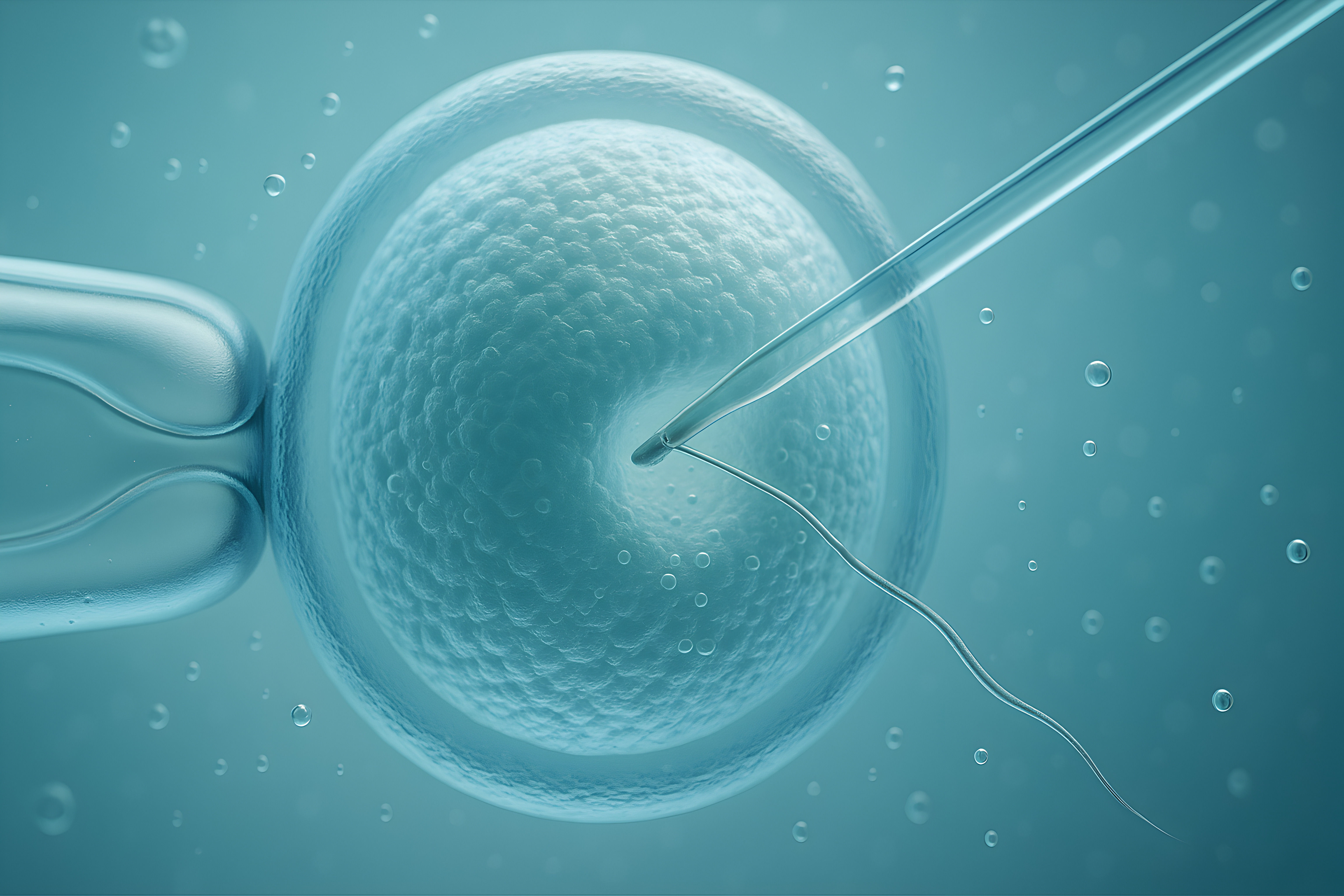Guide to Infertility When Seek Medical Help
Learn about infertility, its common signs, and when to seek medical advice to improve your chances of conceiving.

Written by Dr. Rohinipriyanka Pondugula
Reviewed by Dr. M L Ezhilarasan MBBS
Last updated on 13th Jan, 2026

Introduction
Trying to conceive can be an emotional rollercoaster, filled with hope each month. When pregnancy doesn't happen as quickly as expected, it's natural to wonder, "Is this normal?" or "When is it time to ask for help?" You are not alone. Infertility is a common medical condition, but knowing the right time to seek medical guidance can feel confusing. This guide is designed to demystify that decision. We'll walk you through the official definitions, the critical timelines to be aware of, and the subtle signs your body might be sending. Our goal is to empower you with knowledge, reduce anxiety, and help you take a proactive step towards building your family. Understanding when to seek medical help for infertility is the first, most crucial step on this journey.
Defining Infertility: More Than Just a Timeframe
Infertility is clinically defined as the inability to achieve a pregnancy after 12 months or more of regular, unprotected sexual intercourse. It's important to frame this as a medical issue, not a personal failure. This definition helps healthcare professionals identify when a couple might benefit from an evaluation to identify any underlying causes. However, this 12-month rule is a general guideline, and several important factors can accelerate the need for a professional opinion.
The General Rule: Trying for 12 Months
For the majority of couples under the age of 35, the "one-year rule" applies. It's estimated that about 85% of couples will conceive within this first year of trying. This timeframe accounts for the natural variability in conception; even for perfectly healthy couples, it can take several cycles. This period allows for the normal statistical probability of pregnancy to play out. If you haven't reached the 12-month mark, focusing on optimising your health, such as maintaining a balanced diet, managing stress, and tracking ovulation, is a great use of your energy.
Critical Exceptions: When to Seek Help Sooner (Before 12 Months)
Waiting a full year is not always advisable. Certain circumstances warrant an earlier conversation with a doctor. If any of the following apply to you or your partner, consider seeking help after 6 months of trying, or even immediately:
- Female Age 35 or Older: A woman's fertility begins to decline more significantly in her mid-30s. For women aged 35 and above, it's recommended to seek an evaluation after 6 months of unsuccessful trying.
- Age 40 and Over: For women over 40, an immediate consultation is advised due to a more rapid decline in egg quality and quantity.
- Known Medical Conditions: If either partner has a known history that can impact fertility, such as irregular periods, PCOS, endometriosis, prior cancer treatment, sexually transmitted infections, or known male factor infertility issues like a low sperm count, don't wait.
- History of Recurrent Pregnancy Loss: Experiencing two or more miscarriages is a clear sign to seek a specialised evaluation.
Consult a Reproductive Endocrinologist for the best advice
Recognising the Signs: Your Body's Clues
Beyond the calendar, your body can provide important signals that something may be affecting your fertility. Being attuned to these early signs of fertility problems can help you make a more informed decision about seeing a doctor.
Potential Female Fertility Signals
For women, the menstrual cycle is a key indicator of reproductive health. Pay close attention to the following:
Irregular or Painful Periods
A regular cycle (every 24 to 35 days) typically indicates regular ovulation. Extremely irregular, absent, or very heavy and painful periods can suggest issues like Polycystic Ovary Syndrome (PCOS), thyroid disorders, or endometriosis, all of which can impact fertility.
Symptoms of Hormonal Imbalance
Hormonal fluctuations can manifest as physical signs. Watch for unexplained weight gain or loss, severe acne,
excessive facial or body hair (hirsutism), thinning hair on the head, or changes in libido. These can be linked to
conditions that affect ovulation.
History of Pelvic Conditions or Multiple Miscarriages
A history of Pelvic Inflammatory Disease (PID), endometriosis, or fibroids can cause scarring or blockages in the fallopian tubes. As mentioned, multiple miscarriages also require investigation.
Potential Male Fertility Signals
In about one-third of infertility cases, the issue is solely with the male partner. Signs of infertility in males can be less obvious but may include:
- Problems with sexual function (e.g., difficulty with erection or ejaculation).
- Pain, swelling, or a lump in the testicular area.
- A history of testicular trauma, hernia repairs, or prior infections.
- A family history of infertility.
Often, there are no visible symptoms, which is why a semen analysis is a critical part of the initial infertility evaluation.
The Role of Age in Fertility: A Key Factor
Age is the single most important factor affecting a woman's fertility. While men experience a more gradual decline, age impacts both partners.
Why Age Matters for Women's Fertility
Women are born with all the eggs they will ever have. As they age, the number and quality of these eggs diminish. This decline becomes more pronounced after age 35, leading to a lower chance of conception each month and a higher risk of miscarriage. This biological reality is why the recommended timeline for seeking help shortens with age. If you are a woman over 35, being proactive is one of the most powerful things you can do.
Understanding Male Age and Fertility
While men produce sperm throughout their lives, advancing paternal age (typically considered over 40) can be associated with a gradual decrease in semen volume, sperm motility, and sperm morphology. There is also a slightly increased risk of certain genetic disorders and health conditions in children born to older fathers.
Taking the First Step: What to Expect at the Doctor's Visit
Making that first appointment can feel daunting, but knowing what to expect can ease anxieties. A general practitioner or gynaecologist is a good starting point, who may then refer you to a specialist known as a reproductive endocrinologist.
Preparing for Your Appointment
Being prepared will make the visit more productive. Gather information about:
- Your menstrual cycle history (start dates, regularity, flow).
- Any symptoms you've noticed.
- Your and your partner's medical and surgical history.
- A list of all medications and supplements you take.
- Details of how long you've been trying to conceive.
The Initial Fertility Workup: Tests and Evaluations
The goal of the initial workup is to assess the key factors required for conception: egg production and release, sperm health, and the condition of the uterus and fallopian tubes.
- For Women: This often involves blood tests to check hormone levels (e.g., on day 3 of the cycle and after ovulation), an ultrasound to examine the ovaries and uterus, and potentially an HSG (hysterosalpingogram) X-ray to check if the fallopian tubes are open.
- For Men: The cornerstone is a semen analysis, which evaluates sperm count, motility, and shape. If your initial
evaluation suggests a need for specialised tests or treatment, consulting a specialist through a platform like Apollo24|7 can help you navigate the next steps efficiently.
Get Your Health Assessed
Conclusion: Empowering Your Path to Parenthood
The journey to parenthood is unique for everyone. Knowing when to seek medical guidance for infertility can transform a path filled with uncertainty into one of empowered action. Remember, the timelines and signs discussed here are guidelines designed to help you, not to cause alarm. If you have concerns, the best course of action is always to consult a healthcare professional. They can provide personalised advice based on your specific history and needs. Taking that first step, whether it's tracking your cycles more closely or scheduling an appointment, puts you in control. If you've been trying without success and any of the scenarios in this guide resonate with you, consider it a sign to start the conversation. If you're unsure about your next steps, you can consult a doctor online with Apollo24|7 to discuss your concerns privately and conveniently.
Consult a Reproductive Endocrinologist for the best advice
Consult a Reproductive Endocrinologist for the best advice

Dr. Anand Ravi
General Physician
2 Years • MBBS
Bengaluru
PRESTIGE SHANTHINIKETAN - SOCIETY CLINIC, Bengaluru

Dr. E Prabhakar Sastry
General Physician/ Internal Medicine Specialist
40 Years • MD(Internal Medicine)
Manikonda Jagir
Apollo Clinic, Manikonda, Manikonda Jagir
(150+ Patients)
Aditya Singh
Endocrinologist
8 Years • MBBS
Bengaluru
Apollo One Electronic City, Bengaluru

Dr. Arunava Ghosh
General Physician/ Internal Medicine Specialist
10 Years • MBBS,MD(GENL.MED.),DM(ENDOCRINOLOGY)
Kolkata
VDC Clinic, Kolkata

Dr. Chaithanya R
Internal Medicine Specialist Diabetologist
16 Years • MBBS, MD Internal Medicine, Fellowship in Diabetes(UK), CCEBDM(PHFI)
Bangalore
Apollo Clinic Bellandur, Bangalore
(75+ Patients)
Consult a Reproductive Endocrinologist for the best advice

Dr. Anand Ravi
General Physician
2 Years • MBBS
Bengaluru
PRESTIGE SHANTHINIKETAN - SOCIETY CLINIC, Bengaluru

Dr. E Prabhakar Sastry
General Physician/ Internal Medicine Specialist
40 Years • MD(Internal Medicine)
Manikonda Jagir
Apollo Clinic, Manikonda, Manikonda Jagir
(150+ Patients)
Aditya Singh
Endocrinologist
8 Years • MBBS
Bengaluru
Apollo One Electronic City, Bengaluru

Dr. Arunava Ghosh
General Physician/ Internal Medicine Specialist
10 Years • MBBS,MD(GENL.MED.),DM(ENDOCRINOLOGY)
Kolkata
VDC Clinic, Kolkata

Dr. Chaithanya R
Internal Medicine Specialist Diabetologist
16 Years • MBBS, MD Internal Medicine, Fellowship in Diabetes(UK), CCEBDM(PHFI)
Bangalore
Apollo Clinic Bellandur, Bangalore
(75+ Patients)
More articles from Infertility
Frequently Asked Questions
1. We've been trying for 8 months, and I'm 32. Should I be worried?
It's completely normal to feel anxious, but at 32 and before the 12-month mark, it's generally considered within the normal range. However, if you have irregular periods or other concerning symptoms, there's no harm in speaking to your doctor earlier to ease your mind.
2. What does a basic fertility workup involve?
It typically involves a medical history review, a semen analysis for the male partner, and for the female partner, blood tests to check hormone levels and an ultrasound to examine the ovaries and uterus. An X-ray test (HSG) might be recommended to check the fallopian tubes.
3. Can lifestyle changes really improve our chances of conception?
Absolutely. Factors like maintaining a healthy weight, eating a balanced diet, quitting smoking, reducing alcohol intake, and managing stress can positively impact fertility for both partners. However, they may not overcome all anatomical or severe hormonal issues.
4. How much do fertility tests cost?
The cost varies widely depending on your location, insurance coverage, and the specific tests required. A basic semen analysis and initial blood work are often the most affordable starting points. It's best to check with your insurance provider and clinic for specific costs.
5. What is unexplained infertility?
Unexplained infertility is a diagnosis given when all standard tests for both partners come back normal, but pregnancy is not occurring. It can be frustrating, but it doesn't mean it is untreatable; many couples with unexplained infertility succeed with treatments like intrauterine insemination (IUI) or in vitro fertilisation (IVF).





